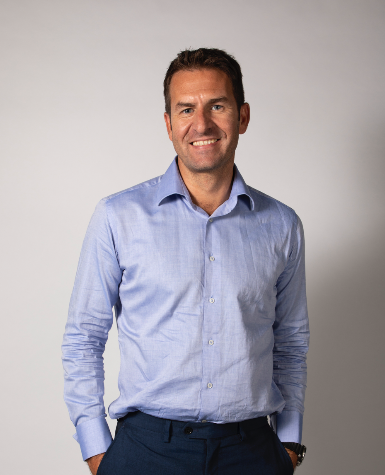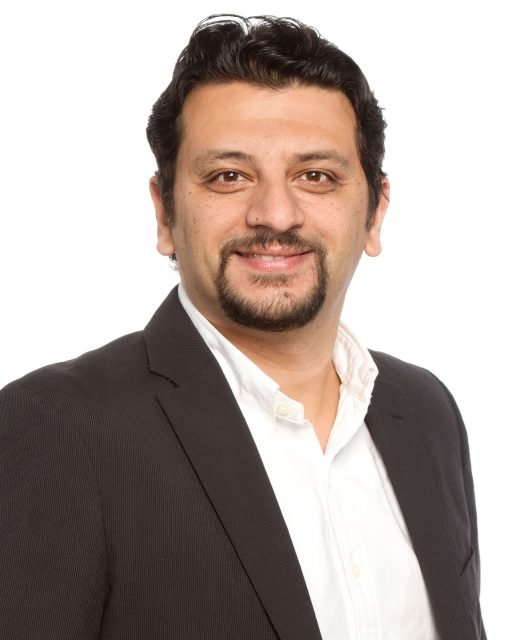Driving Creative Effectiveness In Times Of Uncertainty: Q&A With FP7 McCann’s Jon Marchant
The current global health crisis of Covid-19, undoubtedly, will have its implications on brands of the region and the whole world, pushing marketeers to rethink how to stay relevant, purposeful and engaging in such unknown times.
One of the tactics a lot of brands have flocked to is promoting their support of the global social distancing initiatives with an update to their brand marks.
We’ve exclusively interviewed Jon Marchant, MD of FP7 McCann Dubai, for his thoughts on how brands can drive effectiveness and relevance in such times of uncertainty.
BB: How Can Brands Drive Creative Effectiveness In Times of turbulence and uncertainty?
JM: The smart and brave marketeers are the ones that at least hold their marketing spend during these troubled times. If you remain firm whilst your competitors are reducing their investments, you will gain an exponential higher share of voice. Not only that, it’s been proven countless times in previous recessions that brands that stay present have grown into power brands vs. ones that go dark that might take 2-3 years to fully recover.

BB: Brands are flocking to update their identities to promote social distancing. Is this the right thing to do?
JM: I think it was the right thing to do for the first brand that conceived the idea of playing with their logo to include a purposeful public safety message about keeping 2 meters apart. But that happened at least a month ago, and when I see other brands releasing versions of it even today, it feels more like blatant plagiarism and has lost any impact. That ship has sailed.
BB: How should brands alter their strategies in this global pandemic to drive brand relevance ?
JM: Our McCann Worldgroup mission is “to help brands play a meaningful role in people’s lives”, and never has this been more pertinent than over these last 5-6 weeks. Being meaningful and purposeful can manifest itself in many forms, and we’ve seen some wonderful examples from the marketing industry. This includes meaningful messaging, like the Dettol India Tik Tok hand-washing challenge, to meaningful generosity, like McDonalds UAE giving away free food deliveries to hospitals and health care workers. But what’s been most impressive are the brands that have quickly pivoted their manufacturing models to produce items that help the greater cause; Tesla and Dyson quickly turned their hands to manufacturing ventilators. And LVMH and Brewdog, switched from fragrance and alcoholic beverages respectively, into producing hand sanitizer for the first time.
During times of crisis or complexity, a defined sense of brand purpose and a clear company culture can help brands navigate these types of decisions. And I truly believe these brands will be remembered in the long term.
BB: How is the global crisis pushing brands to champion digital transformation?
JM: Where consumers just a few months ago were encouraged to take a break from their digital devices, today one of the ironies of isolation is the way that social distancing has forced the need to use digital technology to strengthen the physical relationships it was once accused of weakening.
Consumers, across all demographics, have had to embrace new technologies in a very short period of time, and they have been pleasantly surprised at the ease of which they’ve adapted, so naturally the global crisis has accelerated our appetite and acceptance of technology. I think post-crisis, we’ll be looking at a different type of consumer. One that has an increased acceptance for brands talking to them on a variety of different platforms, providing they remain useful and relevant not intrusive or pushy.
We’ve also seen in the agencies, that our processes for how we solve our client briefs have had to pivot, thinking more laterally about how we create content, when conventional production shoots remain pretty much impossible. We’ve significantly increased in-house content production over the last 5 weeks. And we’ve approached those briefs almost as ‘SWAT’ teams, hacking solutions and getting to market in days and hours. And when it comes to activations, we’ve been conceiving ideas that ensure brands show up in digital environments, when it’s impossible to hold live events in physical spaces.
BB: How will this global crisis redefine the advertising landscape in the region (especially with Ramadan season approaching) ?
JM: Well the timing couldn’t be worse! Huge uncertainty as to when lockdowns will be relaxed and normal services will resume in retail, people travelling less and congregating less, it’s not the easiest time to market effectively during periods of such anxiety. It’s our equivalent of the Superbowl or Christmas and many brands rely on this period to make or break their year.
From a media perspective, it goes without saying that spend will be greatly reduced year on year, and there will be seismic shifts from conventional channels like outdoor to digital and social channels.
Again brands that will do better during this period are the ones that stay present, but have also successfully adapted their communications to feel relevant and genuine, vs. opportunistic and salesy. Consumers naturally have a heightened sense of safety and well-being for themselves and for their loved ones, so brands that can capture this spirit naturally and be seen to have a sense of humanity, will be the winners.





